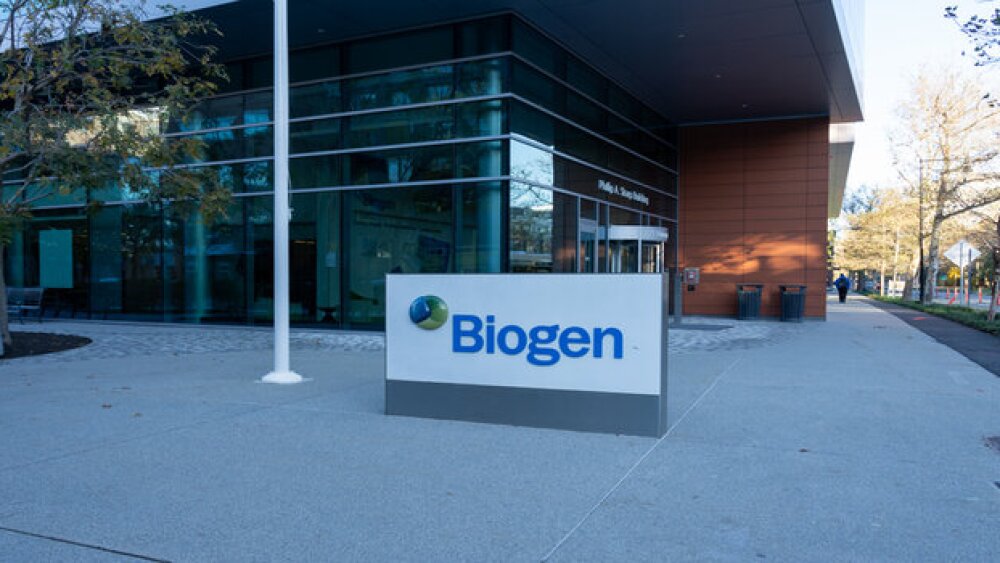Santhera Pharmaceuticals will present data on the therapeutic effects of long-term treatment with Puldysa® in Duchenne muscular dystrophy at the forthcoming medical conferences of the European Paediatric Neurology Society, European Respiratory Society and World Muscle Society.
Pratteln, Switzerland, September 17, 2019 – Santhera Pharmaceuticals (SIX: SANN) will present data on the therapeutic effects of long-term treatment with Puldysa® (idebenone) in Duchenne muscular dystrophy (DMD) at the forthcoming medical conferences of the European Paediatric Neurology Society (EPNS), European Respiratory Society (ERS) and World Muscle Society (WMS). Clinical experts will present multiple posters on the evolution of respiratory function and therapeutic effect of idebenone in patients with DMD.
“It is very rewarding to have the opportunity to share the comprehensive data package including the new long-term data at such reputable medical congresses,” said Kristina Sjöblom Nygren, MD, Chief Medical Officer and Head of Development of Santhera. “The data we assembled to date indicate a disease modifying potential of Puldysa which is highly relevant for DMD patients in respiratory decline with currently no alternative treatment options.”
Leading clinical experts will present aggregate data and new analyses from Santhera’s Phase II (DELPHI) study, the long-term DELPHI-Extension study, the pivotal Phase III (DELOS) study [1-5] and the SYROS study in which patients were treated with idebenone for up to 6 years. In summary, these data indicate that:
- Long-term treatment with idebenone can result in a consistent and sustained reduction in the rate of respiratory function decline.
- Slowing the deterioration of respiratory function is of predictive value for important patient-relevant clinical outcomes such as delaying the time to needing assisted ventilation.
- The risk of bronchopulmonary adverse events can be reduced during long-term treatment with idebenone, with lower occurrence and severity of clinically relevant pulmonary morbidity.
- Treatment outcomes were consistent between two randomized studies and their respective long term data collections, supporting the robustness of the observed treatment effect and the potential of idebenone to preserve respiratory function in DMD.
Conference posters will be made available the day after each respective conference
on Santhera’s website at http://www.santhera.com/
The full list of posters and symposia can be found below:
______________________________
EPNS – 13th European Paediatric Neurology Society Congress
September 17-21, 2019 | Megaron Athens International Conference Centre | Athens, Greece
Symposium
“Targeting respiratory dysfunction in DMD”
September 20, 2019 | 13:00-14:30 | Mitropoulos Hall
- Welcome and introduction – Argirios Dinopoulos, MD, PhD (Athens, Greece)
- Respiratory function decline as a predictor of clinical outcomes – Oscar H Mayer, MD (Philadelphia, USA)
- Altering the course of respiratory dysfunction in DMD – Laurent Servais, MD, PhD (Oxford, UK and Liège, Belgium)
- Summary, Q & A and Close – Argirios Dinopoulos, MD, PhD
Posters
Poster Session 11: Neuromuscular
September 20 | 12:15-13:00 | Poster area
- Poster #140: Servais et al.: Consistent long-term effect of idebenone on the rate of respiratory function decline in advanced patients with Duchenne muscular dystrophy (DMD)
- Poster #138: Servais et al.: Long term analysis of the rate of respiratory function decline in patients with Duchenne muscular dystrophy (DMD) in a real-world setting: The SYROS study
______________________________
ERS – European Respiratory Society International Congress
September 28 to October 2, 2019 | IFEMA Exhibition Centre | Madrid, Spain
Oral abstract presentation
Rare and ultra-rare diseases and the lungs: updates and new perspectives
October 2, 2019 | 11:45-12:15 | Session 551, 9B
- OA5330: Mayer et al.: Evaluating the effect of long-term idebenone treatment on respiratory morbidity in patients with Duchenne muscular dystrophy (DMD)
- OA5331: Mayer et al.: Long term efficacy: Idebenone reduces the rate of both inspiratory and expiratory functional loss in Duchenne muscular dystrophy (DMD)
ePosters of the oral presentations will be available throughout the congress in the poster hall.
______________________________
WMS – 24th International Annual Congress of the World Muscle Society
October 1-5, 2019 | Tivoli | Copenhagen, Denmark
Symposium
“Beyond the wheelchair: Targeting respiratory dysfunction in DMD”
October 2, 2019 | 18:30-20:00 | Room Axelborg
- Welcome and introduction – Eugenio Mercuri, MD, PhD (Rome, Italy)
- Respiratory function decline as a predictor of clinical outcomes: Insights from natural history – Craig M. McDonald, MD (Sacramento, CA, USA)
- Beyond the wheelchair: Measuring clinical significance for patients – Laurent Servais, MD, PhD (Oxford, UK and Liège, Belgium)
- What should we expect for the treatment of respiratory dysfunction in DMD: rate change as the therapeutic goal? – Eugenio Mercuri, MD, PhD
- Q&A and Close – Eugenio Mercuri, MD, PhD
Posters
Poster Session DMD clinical (P.258-268)
October 4, 2019 | 15:00-16:15 | Poster area
- Poster #P261: Buyse et al.: Consistent long-term effect of idebenone in reducing respiratory function decline in advanced patients with Duchenne muscular dystrophy (DMD)
- Poster #P264: Servais et al.: SYROS study -- long-term reduction in rate of respiratory function decline in patients with Duchenne muscular dystrophy (DMD) treated with idebenone
______________________________
References
[1] Buyse et al. (2015), The Lancet 385:1748-1757
[2] McDonald et al. (2016), Neuromuscular Disorders 26:473-480
[3] Buyse et al. (2017), Pediatric Pulmonology 52:508-515
[4] Mayer et al. (2017), Journal of Neuromuscular Diseases 4:189-198
[5] Buyse et al. (2018), Journal of Neuromuscular Diseases 5: 419-430
About Duchenne Muscular Dystrophy
DMD is one of the most common and devastating types of progressive muscle weakness and degeneration starting at an early age and leading to early morbidity and mortality due to respiratory failure. It is a genetic, degenerative disease that occurs almost exclusively in males with an incidence of up to 1 in 3,500 live male births worldwide. DMD is characterized by a loss of the protein dystrophin, leading to cell damage, impaired calcium homeostasis, elevated oxidative stress and reduced energy production in muscle cells. With age, progressive respiratory muscle weakness affecting thoracic accessory muscles and the diaphragm causes respiratory disease, impaired clearance of airway secretions, recurrent pulmonary infections due to ineffective cough, and eventually respiratory failure. There is currently no treatment approved for slowing loss of respiratory function in patients with DMD.
About Idebenone in Duchenne Muscular Dystrophy
Idebenone is a synthetic short-chain benzoquinone and a cofactor for the enzyme NAD(P)H:quinone oxidoreductase (NQO1) capable of stimulating mitochondrial electron transport, reducing and scavenging reactive oxygen species (ROS) and supplementing cellular energy levels.
DELOS was a Phase III, double-blind, placebo-controlled 52-week study which randomized 64 patients, not taking concomitant steroids, to receive either idebenone (900 mg/day) or matching placebo. The study met its primary endpoint, the change from baseline in peak expiratory flow (PEF) expressed as percent of predicted, which demonstrated that idebenone can slow the loss of respiratory function. Supportive data for idebenone were shown in the Phase II double-blind, placebo-controlled DELPHI study and its 2-year open-label extension study (DELPHI-E).
SYROS was a prospectively planned, retrospective collection of long-term respiratory function data from 18 patients who completed the DELOS study and subsequently received idebenone (900 mg/day) under Expanded Access Programs (EAPs). The SYROS study showed that the previously observed beneficial effect of idebenone in reducing the rate of respiratory function decline was maintained for up to six years during treatment.
About Santhera
Santhera Pharmaceuticals (SIX: SANN) is a Swiss specialty pharmaceutical company focused on the development and commercialization of innovative medicines for rare neuromuscular and pulmonary diseases with high unmet medical need. Santhera is building a Duchenne muscular dystrophy (DMD) product portfolio to treat patients irrespective of causative mutations, disease stage or age. A marketing authorization application for Puldysa® (idebenone) is currently under review by the European Medicines Agency. Santhera has an option to license vamorolone, a first-in-class dissociative steroid currently investigated in a pivotal study in patients with DMD to replace standard corticosteroids. The clinical stage pipeline also includes POL6014 to treat cystic fibrosis (CF) and other neutrophilic pulmonary diseases, as well as omigapil and an exploratory gene therapy approach targeting congenital muscular dystrophies. Santhera out-licensed ex-North American rights to its first approved product, Raxone® (idebenone), for the treatment of Leber’s hereditary optic neuropathy (LHON) to Chiesi Group. For further information, please visit www.santhera.com.
Raxone® and Puldysa® are trademarks of Santhera Pharmaceuticals.
For further information please contact:
public-relations@santhera.com or
Eva Kalias, Head External Communications
Phone: +41 79 875 27 80
Disclaimer / Forward-looking statements
This communication does not constitute an offer or invitation to subscribe for or purchase any securities of Santhera Pharmaceuticals Holding AG. This publication may contain certain forward-looking statements concerning the Company and its business. Such statements involve certain risks, uncertainties and other factors which could cause the actual results, financial condition, performance or achievements of the Company to be materially different from those expressed or implied by such statements. Readers should therefore not place undue reliance on these statements, particularly not in connection with any contract or investment decision. The Company disclaims any obligation to update these forward-looking statements.




